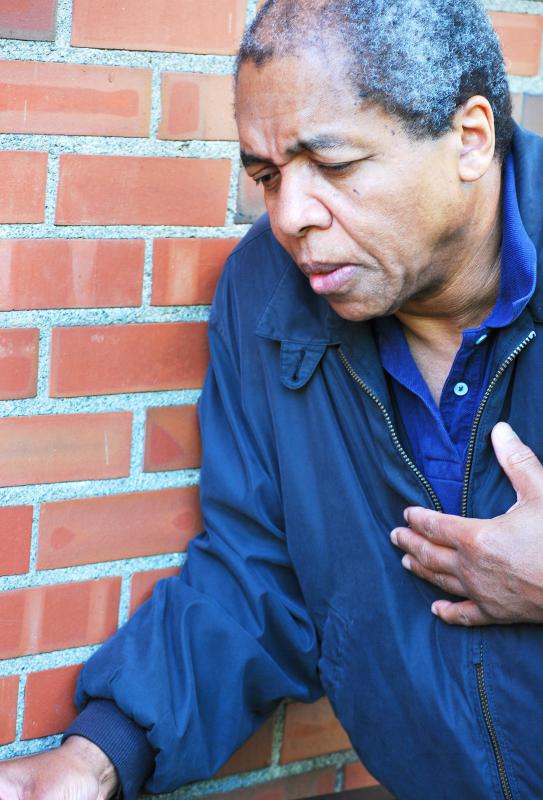At WiseGEEK, we're committed to delivering accurate, trustworthy information. Our expert-authored content is rigorously fact-checked and sourced from credible authorities. Discover how we uphold the highest standards in providing you with reliable knowledge.
What is Pulmonary Sarcoidosis?
Pulmonary sarcoidosis is sarcoidosis that affects the lungs, or more specifically, disease creating inflammations that cause lumps or granulomas to form in the lungs. These granulomas may heal spontaneously or respond to treatment, but sometimes they result in damage to the lungs, which requires additional treatment or managing. Pulmonary sarcoidosis makes up 9 out of 10 sarcoidosis cases. In the majority of these, pulmonary sarcoidosis is not fatal, but is likely to require lifetime management. This can be challenging since initial onset of the disease may occur as early as peoples’ 20s.
The causes of all forms of sarcoidosis are still a matter of dispute and it’s suggested there may be multiple causes. It certainly does seem to appear more often in European Caucasians and in African Americans. There are suggested genetic links and theories that specific genes may be activated by exposure to substances, viruses or bacteria. As yet, there is no clear single cause.

When people have pulmonary sarcoidosis, symptoms might not seem particularly noticeable or even that bothersome at first. Granulomas in the lungs can cause a feeling of short breath, wheezing, and a cough that doesn’t respond to treatment. With this there may also be evidence of granulomas in the eyes, general fatigue, various forms of rashes, and presence of fever. Taken all together, such symptoms could suggest pulmonary sarcoidosis.

Doctors next confirm this with a variety of scans that might visualize any inflammation in the lungs or elsewhere in the body. The condition isn’t confirmed as pulmonary sarcoidosis at first. Evidence that granulomas aren’t forming elsewhere, such as in the other organs, is usually gathered prior to giving specific diagnosis.
The goal of treatment then becomes to offset any potential injury that could occur from continued inflammation. In most cases this means people will take medications like corticosteroids. There are other medicines, such as methotrexate, that could be used instead, but most people would begin treatment with corticosteroids, only moving onto other medications if deemed medically necessary. Supportive medications for breathing might also be used, and could include those used in the treatment of chronic obstructive pulmonary disorder.

In most cases, people with pulmonary sarcoidosis will need continued following from a specialist. The frequency of visits might depend on the severity of illness and medications’ ability to address it. In rare circumstances, more than medicine might be used. In rare cases, if lung damage from pulmonary sarcoidosis is severe, doctors may consider lung transplant to address the issue.
AS FEATURED ON:
AS FEATURED ON:
















Discuss this Article
Post your comments